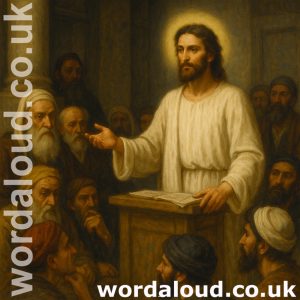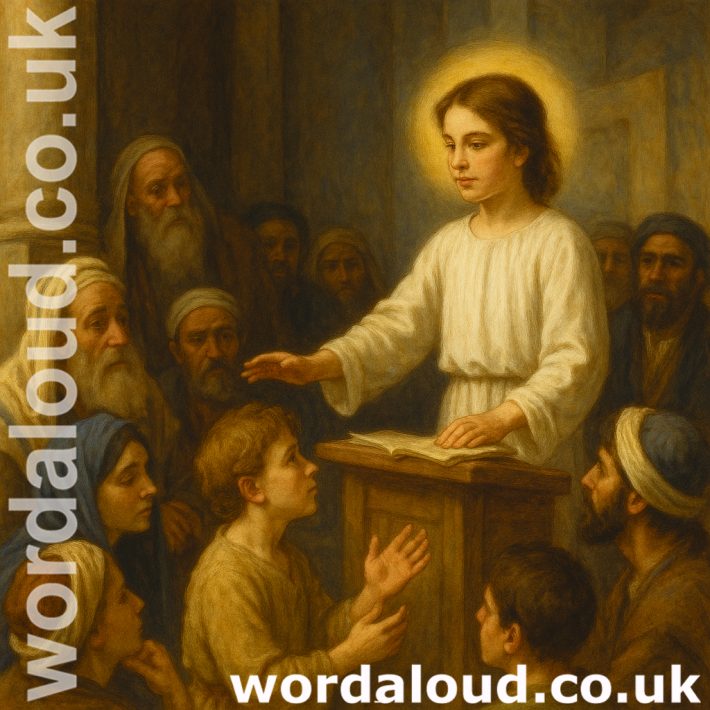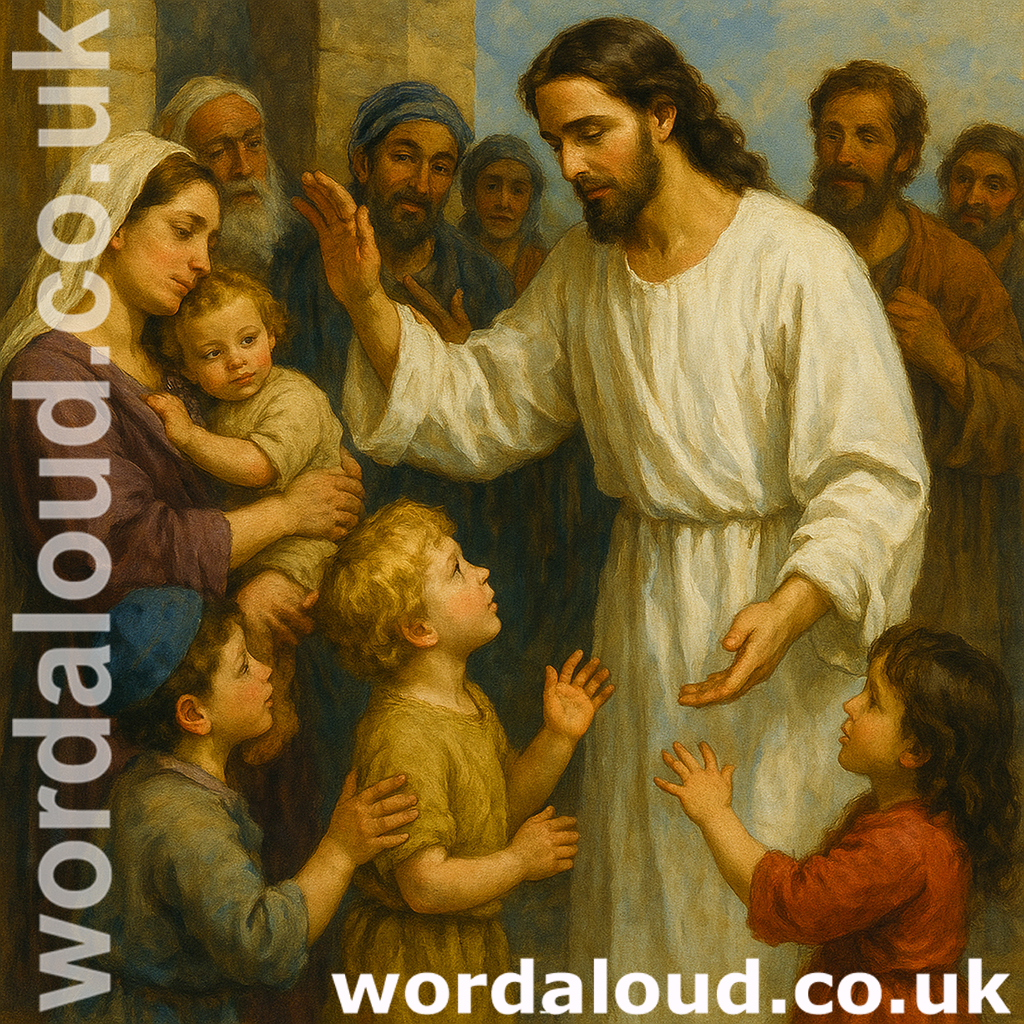Christian Art | Jesus As A Child In The Synagogue
Office Of Readings | Week 13, Sunday, Ordinary Time | A Reading From The Homilies Of Pope Paul VI | We Preach Christ To The Far Ends Of The Earth
‘We proclaim Christ to the whole world.’
The Christological Heart Of The Homily
At the centre of this homily is a richly textured portrait of Jesus Christ: fully divine, fully human, and totally given to the world for its redemption. Pope Paul VI affirms with passion that Jesus Christ is not merely a historical figure or moral teacher but the incarnate Word of God, the Alpha and the Omega (cf. Rev. 22:13), the one in whom ‘all things hold together’ (Col. 1:17).
The homily draws on the Christological hymn of Colossians 1:15-20, describing Christ as ‘the firstborn of all creation’, the head of the Church, and the one in whom the fullness of God was pleased to dwell. In emphasising that Christ is both ‘the beginning and the end’, Paul VI presents Jesus as the key to understanding human history and the destiny of each person. This is a deeply Pauline theology, with references not only to Colossians but also to Romans 5 and Philippians 2.
In presenting this image of Christ, Pope Paul follows the tradition of patristic and medieval theology. His description of Jesus as ‘our truth and our light’, ‘our bread’, ‘our shepherd’ and ‘our brother’ recalls the writings of Church Fathers such as Saint Gregory of Nyssa and Saint Augustine, who also saw Christ as the fulfilment of every human longing and the source of all beatitude. In doing so, he affirms that Jesus is not an abstraction but the living, intimate presence of God among us.
A Vatican II Theology Of Mission
Paul VI’s homily is indebted to the Second Vatican Council, particularly the constitutions Lumen Gentium and Gaudium et Spes, and the decree Ad Gentes. In Lumen Gentium, Christ is declared the ‘light of the nations’ (LG 1), and the Church exists to reflect that light. The Pope takes up this charge with vigour, exhorting the Church not merely to contemplate Christ privately but to proclaim him publicly.
In Gaudium et Spes, Christ is presented as the one who ‘fully reveals man to himself’ (GS 22), an idea that echoes through Paul VI’s insistence that Christ is ‘the complete fulfilment of our lives and our great happiness for all eternity’. This is not sentimental language; it is a precise theological claim. The human heart is made for communion with God, and in Christ, that communion becomes possible.
The Pope’s emphasis on evangelisation prefigures his own Evangelii Nuntiandi (1975), where he wrote: ‘Evangelising is in fact the grace and vocation proper to the Church, her deepest identity. She exists in order to evangelise.’ In his homily, this evangelistic impulse becomes deeply personal: ‘Not to preach the Gospel would be my undoing,’ he says, echoing 1 Corinthians 9:16.
Christ As Fulfilment And Hope
The homily presents Christ not only as the one who redeems but as the one who accompanies. ‘A man of sorrow and hope’, he ‘knows us and loves us’ and is with us throughout our lives. This theology of accompaniment is striking in its pastoral tenderness. It aligns closely with the post-conciliar emphasis on a Church that walks with humanity, expressed beautifully in Gaudium et Spes 1: ‘The joys and the hopes, the griefs and the anxieties of the men of this age… these are the joys and hopes, the griefs and anxieties of the followers of Christ.’
Moreover, Jesus Christ is depicted not simply as the judge but also the hope of the eschaton: the one who will come in glory and in mercy. Pope Paul VI is clear that Christ’s judgment is not to be feared but longed for, for in him is our ‘great happiness for all eternity’.
The Role Of Mary And The Communion Of Saints
The brief reference to Mary as ‘more blessed than any woman’ and as our spiritual mother, signals Pope Paul’s deep devotion to Mary. His 1964 proclamation of Mary as ‘Mother of the Church’ during the Council adds weight to this moment. Mary is not presented apart from Jesus Christ, but as the one who brings him into the world and continues to accompany his mystical Body.
A Christ-Centred Church
The homily reminds us that the Church is not about herself. Her identity is derived entirely from her relationship to Jesus Christ. As Vatican II stated, the Church is ‘in Christ like a sacrament or as a sign and instrument both of a very closely knit union with God and of the unity of the whole human race’ (Lumen Gentium, 1). Pope Paul VI takes this vision and renders it with deep pastoral and poetic warmth.

A Reading From The Homilies Of Pope Paul VI | We Preach Christ To The Far Ends Of The Earth
Not to preach the Gospel would be my undoing, for Christ himself sent me as his apostle and witness. The more remote, the more difficult the assignment, the more my love of God spurs me on. I am bound to proclaim that Jesus is Christ, the Son of the living God. Because of him we come to know the God we cannot see. He is the firstborn of all creation; in him all things find their being. Man’s teacher and redeemer, he was born for us, died for us, and for us he rose from the dead.
All things, all history converges in Christ. A man of sorrow and hope, he knows us and loves us. As our friend he stays by us throughout our lives; at the end of time he will come to be our judge; but we also know that he will be the complete fulfilment of our lives and our great happiness for all eternity.
I can never cease to speak of Christ for he is our truth and our light; he is the way, the truth and the life. He is our bread, our source of living water who allays our hunger and satisfies our thirst. He is our shepherd, our leader, our ideal, our comforter and our brother.
He is like us but more perfectly human, simple, poor, humble, and yet, while burdened with work, he is more patient. He spoke on our behalf; he worked miracles; and he founded a new kingdom: in it the poor are happy; peace is the foundation of a life in common; where the pure of heart and those who mourn are uplifted and comforted; the hungry find justice; sinners are forgiven; and all discover that they are brothers.
The image I present to you is the image of Jesus Christ. As Christians you share his name; he has already made most of you his own. So once again I repeat his name to you Christians and I proclaim to all men: Jesus Christ is the beginning and the end, the alpha and the omega, Lord of the new universe, the great hidden key to human history and the part we play in it. He is the mediator – the bridge, if you will – between heaven and earth. Above all he is the Son of man, more perfect than any man, being also the Son of God, eternal and infinite. He is the son of Mary his mother on earth, more blessed than any woman. She is also our mother in the spiritual communion of the mystical body.
Remember: it is Jesus Christ I preach day in and day out. His name I would see echo and re-echo for all time even to the ends of the earth.
Prayer Proclaiming Jesus Christ
Lord Jesus Christ,
You are the beginning and the end,
the Word made flesh and the Light of the world.
You came to reveal the Father, to show us mercy,
to be our Brother, our Shepherd, and our King.
Grant us, Lord, the grace never to cease proclaiming your name.
Let your Gospel burn in our hearts like fire,
compelling us to witness with courage, humility, and joy.
May we be faithful to the mission entrusted to us—
to carry your name to the ends of the earth.
Unite us in your Body, the Church,
sustain us with your Bread of Life,
and strengthen us with your Spirit,
so that our lives may echo the truth we proclaim.
Through the intercession of Mary, your Mother and ours,
make us true disciples and apostles,
living signs of hope for the world.
Amen.
Glossary Of Christian Terms
Christology – The branch of theology relating to the nature and person of Jesus Christ.
Evangelisation – The act of proclaiming the Good News of Jesus Christ to others in word and deed.
Alpha and Omega – A biblical title for Christ, signifying that he is the beginning and the end (Revelation 22:13).
Mediator – One who serves as a bridge or go-between; Christ is the Mediator between God and humanity.
Mystical Body – A term used by St Paul to describe the Church, with Christ as the head and the faithful as the members.
Son of Man / Son of God – Scriptural titles for Jesus. ‘Son of Man’ often refers to his humanity and mission, ‘Son of God’ to his divinity.
Second Vatican Council (Vatican II) – A major ecumenical council of the Church (1962–1965) that renewed Catholic theology, liturgy, and approaches to the modern world.
Pope Paul VI – Pope from 1963 to 1978, known especially for implementing Vatican II reforms and promoting the Church’s mission in the modern world.
Kingdom of God – The reign of God’s love, justice, and peace, inaugurated by Jesus and growing until its full realisation.
New Evangelisation – A term popularised by Pope John Paul II and rooted in Vatican II, referring to re-proposing the Gospel to those who have heard it but drifted away.








